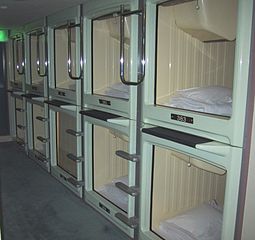A guest post by James Wharton.
2148. That’s the number of words I wrote yesterday. If I can do that every day for a week—let’s see, that’s 15,036 words. If I do that four weeks in a row, that’s 60,144 words, almost enough for a novel. So there you have it, a short course in how to set goals.
The catch is I neglected to tell you I only wrote 300 words the day before. And the day before that, I produced only 100 or so words. So what is the total word count for the last three days? 2548. That equates to 849 words per day. That’s still a lot, or is it? How many words should I write every day? And, oh by the way, how many will I write today since I have what I refer to as a “work hangover,” a yucky, listless, energy-devoid state from working too hard the previous day. Of course, I must write this article as I committed to a deadline, but usually, one of those “days after” means I will get little to nothing written that day. You see the problem. In four days, I will have written at a rate of 637 words per day. Is that enough?
So what should I have done? How many words should I write a day? How many days a week should I write? How many books per year should I produce? Welcome to the tricky world of goal setting. It is world many of us inhabit. We must complete X-number of tasks by a certain time, get so many sales each month, drive so many miles per day and so on. For most of our lives, we are in some sort of goal-based environment.
 Several years ago I participated in NaNoWriMo, the quest to write a 50,000 word novel in one month. I did it. I learned that I could indeed write that many words, but also learned that is not the way I want to write. Yes, it was grueling but fun, and I felt good about hitting the 50,000 word goal, but not so proud of what I produced. I spent the next eight months completely re-writing it. Out of that exercise came The Destiny Project, the novel that is my best-seller.
Several years ago I participated in NaNoWriMo, the quest to write a 50,000 word novel in one month. I did it. I learned that I could indeed write that many words, but also learned that is not the way I want to write. Yes, it was grueling but fun, and I felt good about hitting the 50,000 word goal, but not so proud of what I produced. I spent the next eight months completely re-writing it. Out of that exercise came The Destiny Project, the novel that is my best-seller.
Depending on who you listen to, it seems that the general consensus is that 1500 words a day is a respectable amount. Of course that comes with a ton of provisos. Stephen King may write 15,000 words a day or more for all I know. John Banville, one of my favorite authors, says he writes 1500 words per day on his Benjamin Black series, however, not nearly as many on his regular novels. If you’ve ever read a Banville novel, you know better than to sit down and get comfortable without a dictionary at your side. His regular novels are truly works of art and I can’t imagine Banville crafting such a book without many hours laboring over the dictionary and thesaurus. I have no idea how many words per day he grinds out on one those masterpieces, but I can’t imagine it is more than a few hundred.
Stephen King seems to have the ability to write spontaneously without the need for a lot of re-writes, but in view of his mammoth size books, I can’t believe he works anywhere near as hard as I must to produce half or probably even less the number of words he does. And there’s another proviso to the 1500 word per day goal. 1500 words is a gross amount. It’s what you put down before you revise, rewrite, delete paragraphs or pages, etc. etc. Personally, I do a lot of rewrites and revisions. Every time I re-read my draft, I find things I need to change or could have written better. Although my publisher did edit my two published books, I don’t use an editor on my self-published books because of the prohibitive cost. But let me tell you, editing your own work is difficult if not impossible.
The point is, after the revising, rewriting and editing is completed, your net words per day will drop dramatically, perhaps to only a few hundred.
Another proviso is the amount of uninterrupted private time you devote to writing. Writing is a time-intensive, energy demanding, solitary activity. Do you have a space where you write? Do you have a regular time when you write? I am fortunate to have a studio where I can cut off the world and its noises and other interruptions. Whatever you may have available, make it as “private” as possible and write at a regular time on writing days. Interruptions dramatically impact your productivity.
Another proviso is how far along you are in the writing experience. That also impacts your productivity. Your ability and speed will differ substantially if you’ve written fifty thousand words, two hundred and fifty thousand words, or a million words.
When I write a novel, I set my goal at 1500 words per day and 5 days per week. Obviously, from my opening paragraph, I don’t necessarily achieve that goal every day or week. But I consider it a good day if I produce 1500 words that, while still needing revision and editing, are probably solid enough to work as part of the book. That doesn’t mean they absolutely will. I’ve cut complete sections (1500 or more words) many times. It’s not right until it’s right, and you can only hope the reader will feel that way too.
The bottom line is that writing is a creative process and setting an absolute word per day goal, (the best measure of productivity) is probably impossible. That is why goal setting with writing is an art, not a science. So here is what I suggest:
- Have a specific place to write-one that is quiet and where you won’t be interrupted for a reasonable span of time. And turn off the cell phone.
- Set a daily word per day goal that is reasonable (achievable) for you. Decide how many days a week can you will work? Five days a week may or may not be realistic, but that is the number I use. That goal should be a comfortable number dependent on how well and how fast you write and what you feel works for you. This is a gross number as you will need to revise, rewrite and do a final edit later. The important point is to be faithful to your words per day and work days per week goals. If you don’t reach the words per day goal today, don’t try to do more tomorrow to catch up with your overall five day goal.

- Set a time for completion of your overall project. I find that my novels generally take a year to write (Approximately 75,000-85,000 words.) Obviously I don’t achieve a gross word per day goal of 1500 words per day. Life has its interruptions. I began writing The Destiny Project II early last year when my mother became seriously ill. I spent a lot of time visiting her out of state and her illness was so disruptive I couldn’t go on with writing that particular book. (I am again working on it.) However, I began writing another book to fill my idle hours. Out of that came Delirium, my newest novel.
Life and disruptions happen, but always stay focused on achieving your daily and weekly writing goals. Execution is the most important part of goal setting—SO DO IT!!
The main thing about writing is to have as much fun as you can and work at a pace that is comfortable and pleasant. Set your word per day and days per week goals and then a completion date for your project. Above all, adhere to a regular schedule and then judge your performance. How many words did I write this week? My goal was 1,000 words per day at five days per week. Did I write 5,000 gross words this week? Did I write 20,000 gross words this month?
After several months working your established schedule, you will have structure and discipline and be able to predict when your project will be complete–assuming no outside interference.
 James Wharton’s Bio:
James Wharton’s Bio: James Wharton is a full time writer with two published and eight self-published books. His most recent novel, Delirium, was published in February and his coming novel, The Destiny Project II, is due out in the Fall of 2014.
Web site: jameswharton.net
Email: jameswharton1@aol.com



